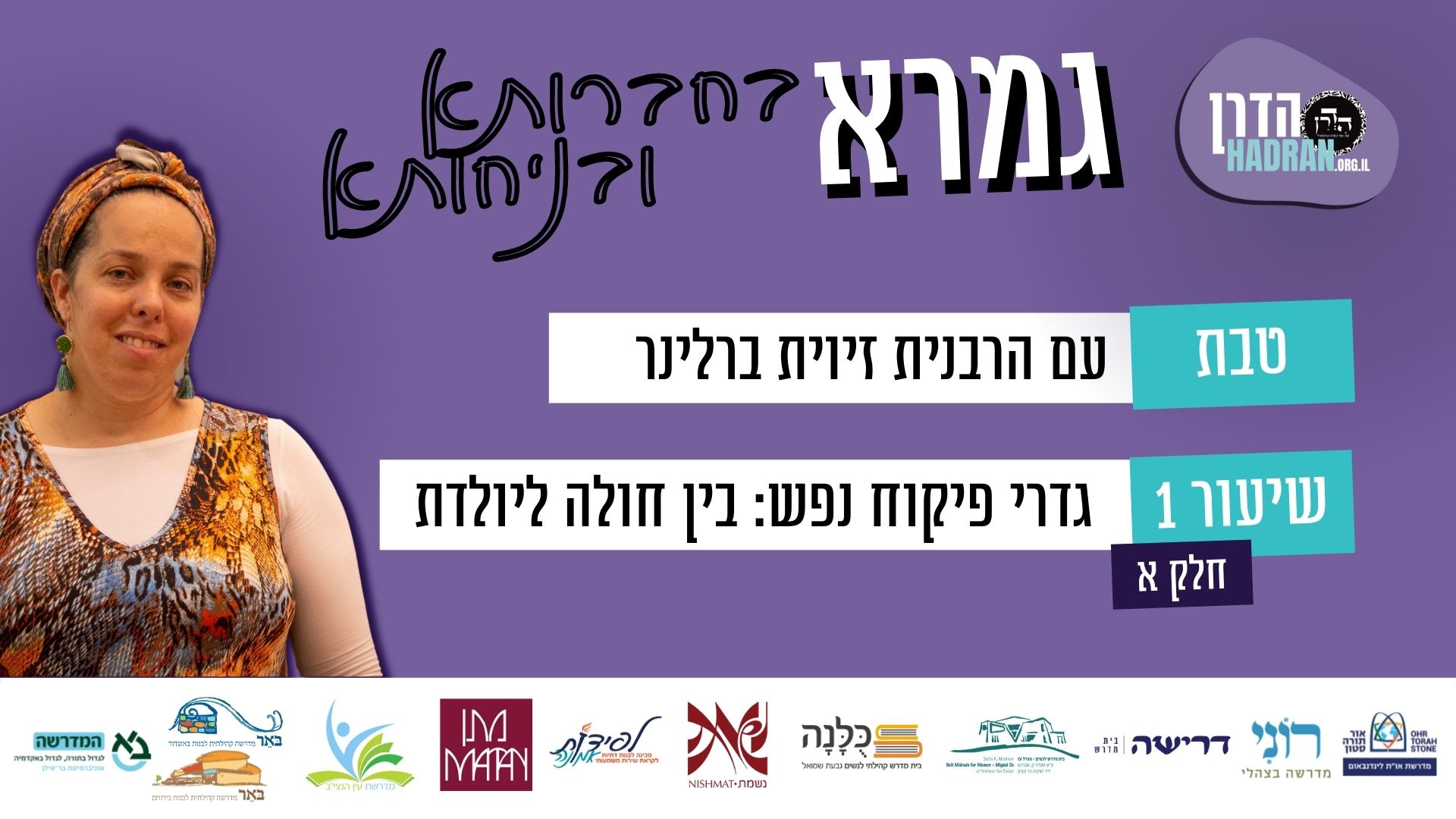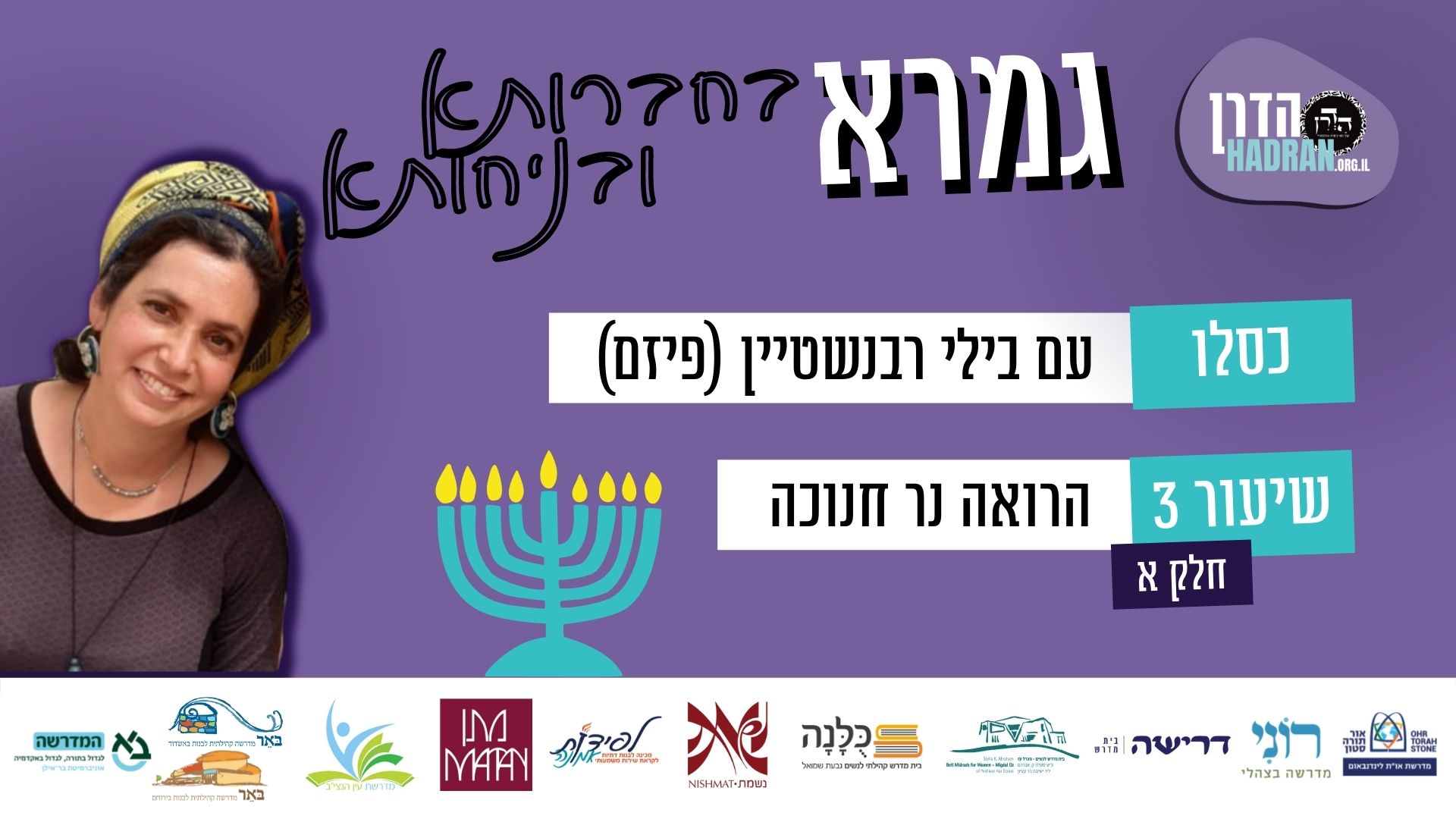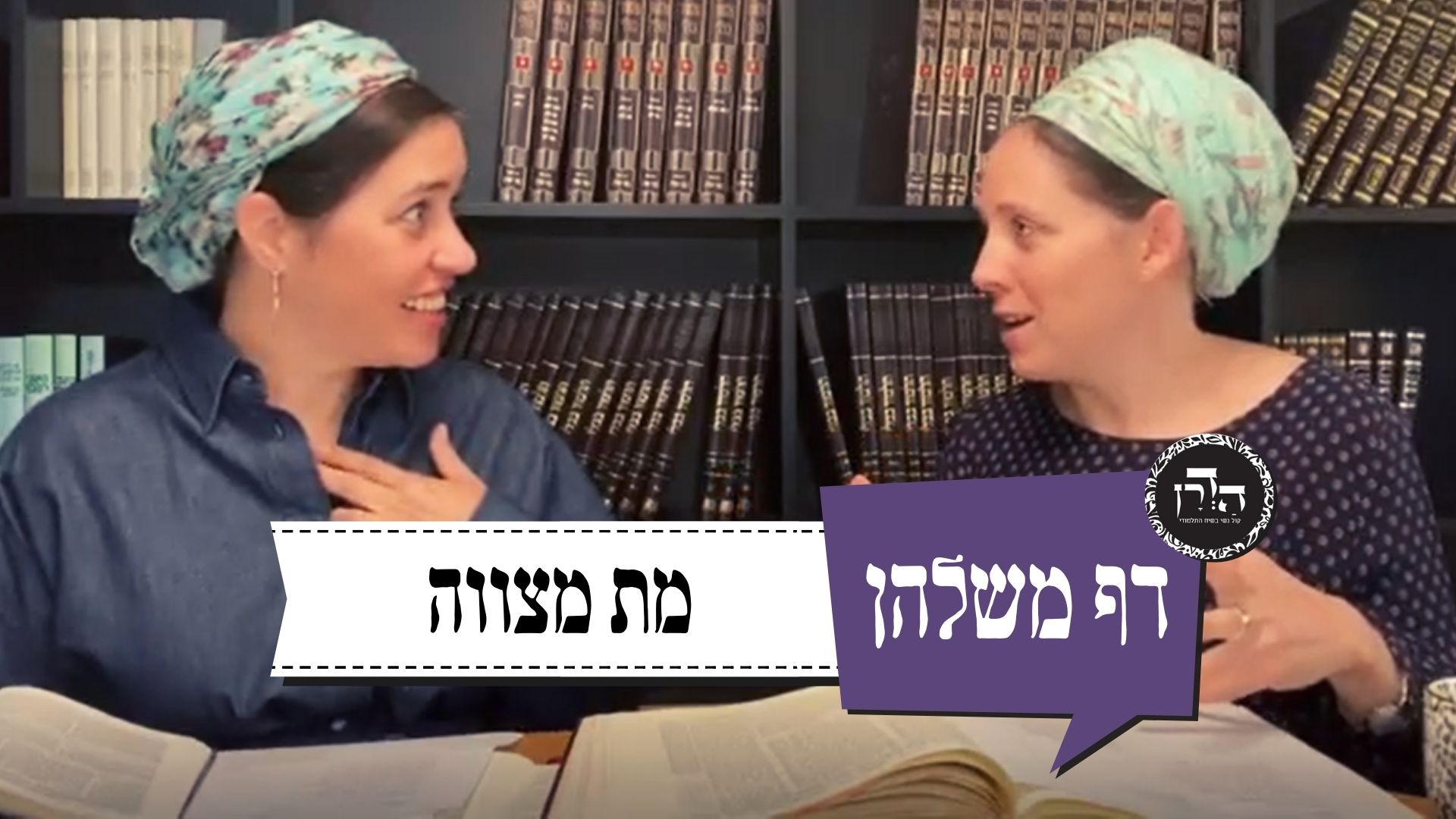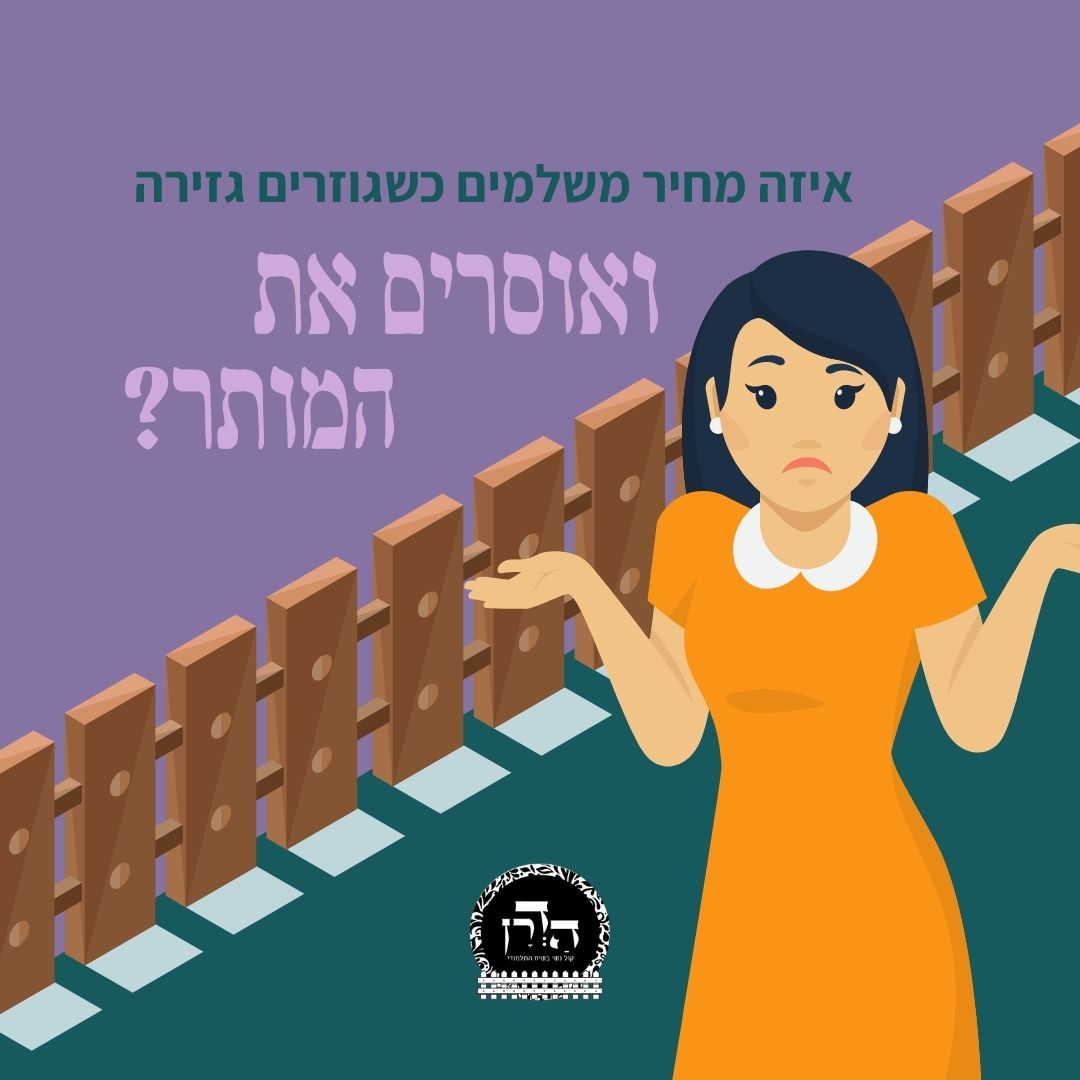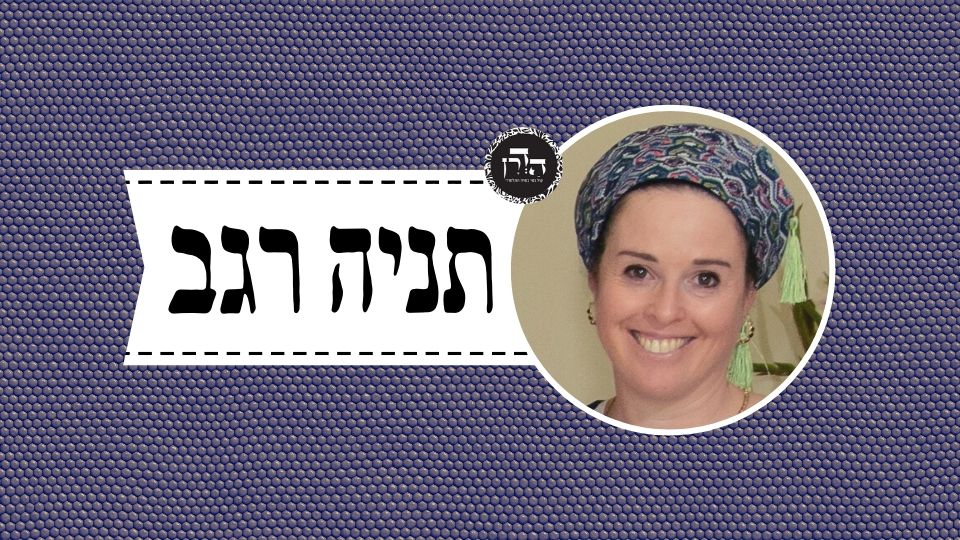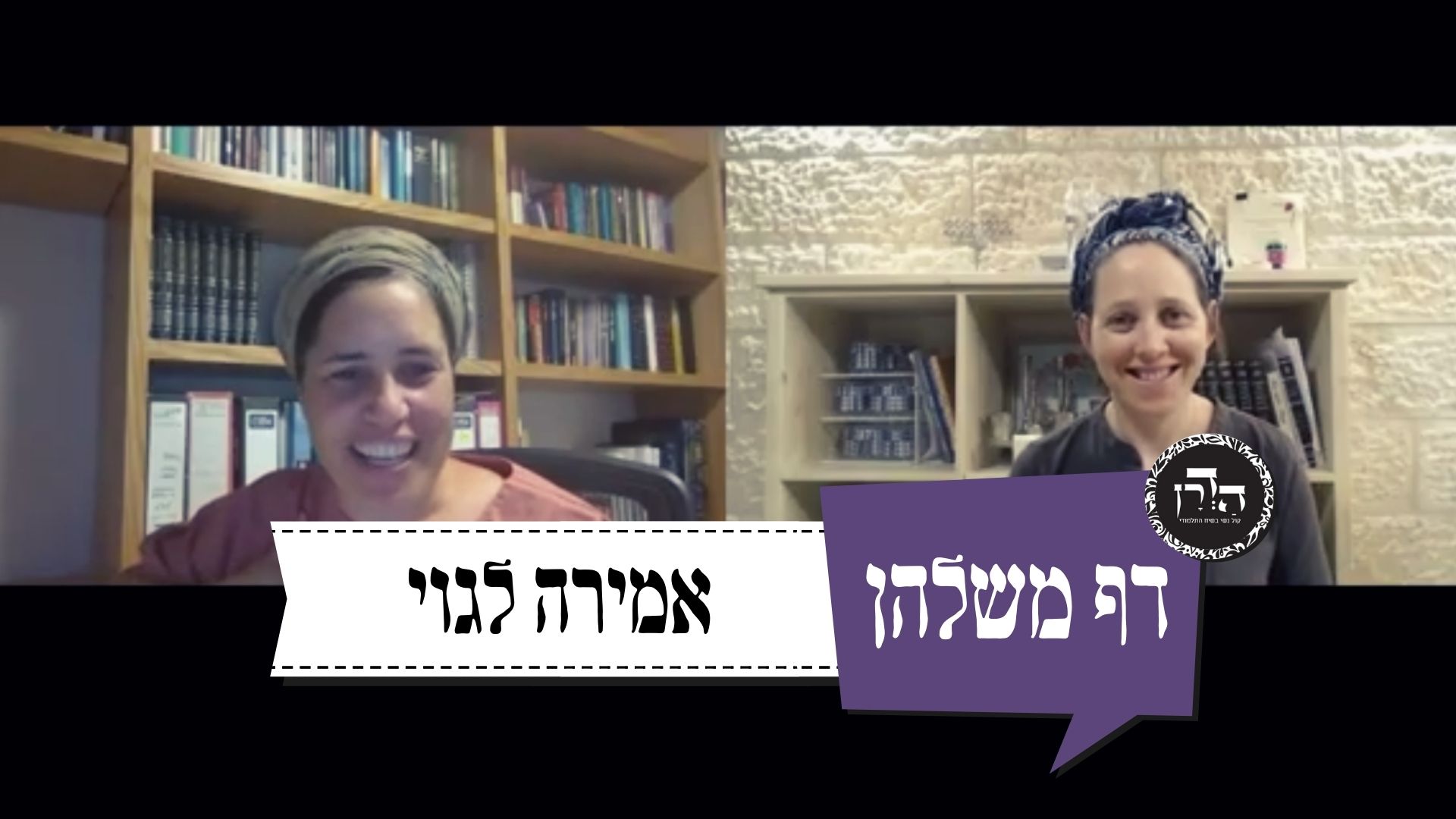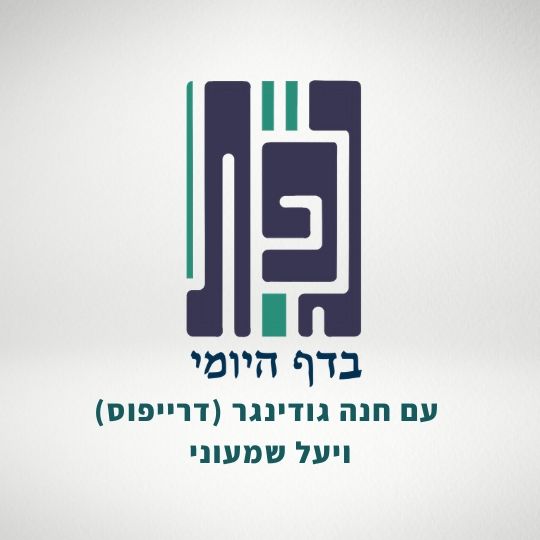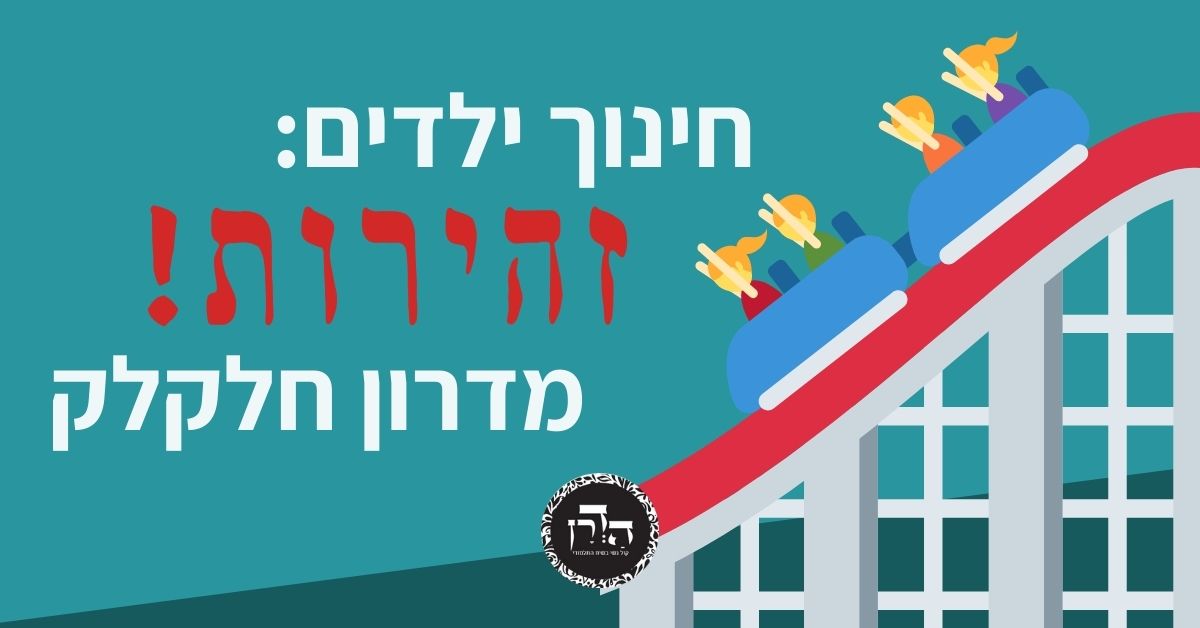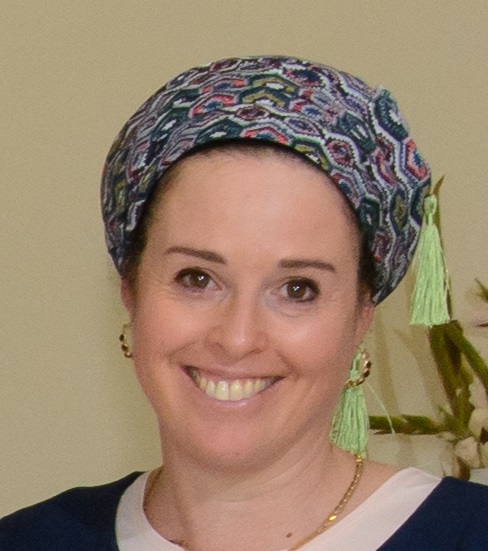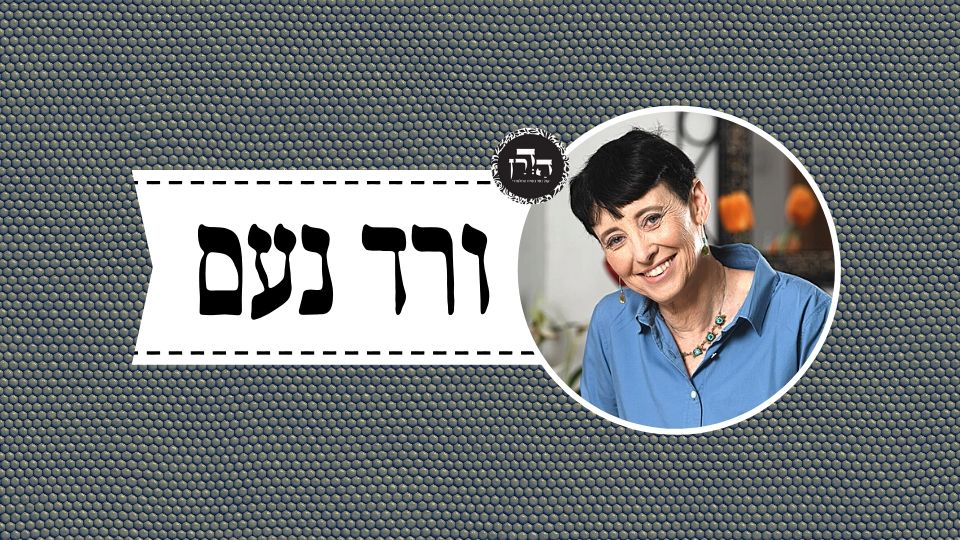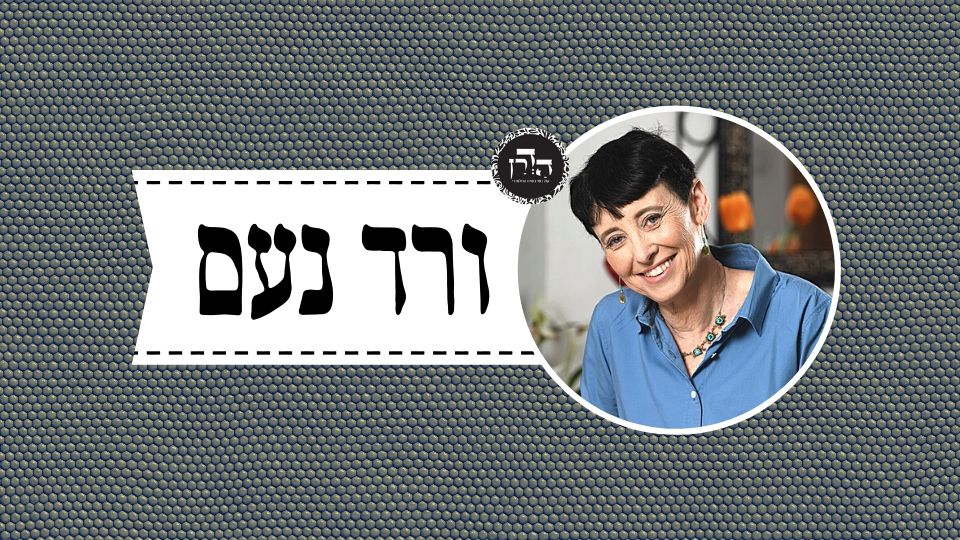שבת קיד
מִנַּיִין לְשִׁנּוּי בְּגָדִים מִן הַתּוֹרָה, שֶׁנֶּאֱמַר: ״וּפָשַׁט אֶת בְּגָדָיו וְלָבַשׁ בְּגָדִים אֲחֵרִים״, וְתָנָא דְּבֵי רַבִּי יִשְׁמָעֵאל, לִימְּדָה תּוֹרָה דֶּרֶךְ אֶרֶץ: בְּגָדִים שֶׁבִּישֵּׁל בָּהֶן קְדֵירָה לְרַבּוֹ — אַל יִמְזוֹג בָּהֶן כּוֹס לְרַבּוֹ.
From where is it derived that changing clothes is a display of honor? As it is stated: “And he will remove his garments and will don other garments, and he will bring the ashes outside of the camp to a pure location” (Leviticus 6:4). The school of Rabbi Yishmael taught: The Torah taught you etiquette. The clothes in which one prepared food for his master, one does not wear to pour his master wine. Since cooking makes one’s clothes dirty, he should wear fresh clothes when serving his master.
אָמַר רַבִּי חִיָּיא בַּר אַבָּא אָמַר רַבִּי יוֹחָנָן: גְּנַאי הוּא לְתַלְמִיד חָכָם שֶׁיֵּצֵא בְּמִנְעָלִים הַמְטוּלָּאִים לַשּׁוּק. וְהָא רַבִּי אַחָא בַּר חֲנִינָא נָפֵיק! אָמַר רַבִּי אַחָא בְּרֵיהּ דְּרַב נַחְמָן: בִּטְלַאי עַל גַּב טְלַאי.
Rabbi Ḥiyya bar Abba said that Rabbi Yoḥanan said: It is disgraceful for a Torah scholar to go out to the marketplace in patched shoes. The Gemara asks: Didn’t Rabbi Aḥa bar Ḥanina go out in patched shoes? Rabbi Aḥa, son of Rav Naḥman, said: They only prohibited patched shoes if there is a patch upon a patch.
וְאָמַר רַבִּי חִיָּיא בַּר אַבָּא אָמַר רַבִּי יוֹחָנָן: כׇּל תַּלְמִיד חָכָם שֶׁנִּמְצָא רְבָב עַל בִּגְדּוֹ — חַיָּיב מִיתָה, שֶׁנֶּאֱמַר: ״כׇּל מְשַׂנְאַי אָהֲבוּ מָוֶת״ — אַל תִּקְרֵי ״מְשַׂנְאַי״, אֶלָּא ״מַשְׂנִיאַי״. רָבִינָא אָמַר: רְבָד אִיתְּמַר. וְלָא פְּלִיגִי: הָא בִּגְלִימָא, הָא בִּלְבוּשָׁא.
And Rabbi Ḥiyya bar Abba said that Rabbi Yoḥanan said: A Torah scholar on whose clothes a fat stain is found is liable to receive the death penalty, as it is stated: “All those who hate me love death” (Proverbs 8:36), and the Sages said: Do not read: Those who hate me [mesanai]. Rather, read: Those who cause me to be hated [masniai]. Those who cause people to hate the Torah by creating the impression that those who study Torah are unclean deserve the death penalty. Ravina said: A fat stain [revav] was not stated, but rather a bloodstain [revad] was stated (Rabbeinu Ḥananel), which is a greater disgrace. The Gemara adds: They did not disagree over the halakha. Rather, the dispute is whether that which we learned concerning stains on a Torah scholar’s clothes refers to an overgarment that people wear over the rest of their clothes, while that which we learned with regard to a bloodstain refers to an undergarment, where a bloodstain is disgraceful but other types of spots are not.
וְאָמַר רַבִּי חִיָּיא בַּר אַבָּא אָמַר רַבִּי יוֹחָנָן: מַאי דִּכְתִיב ״כַּאֲשֶׁר הָלַךְ עַבְדִּי יְשַׁעְיָהוּ עָרוֹם וְיָחֵף״. ״עָרוֹם״ — בִּבְגָדִים בְּלוּאִים, ״וְיָחֵף״ — בְּמִנְעָלִים הַמְטוּלָּאִים.
And similarly, Rabbi Ḥiyya bar Abba said that Rabbi Yoḥanan said: That which is written: “As My servant Isaiah went naked and barefoot for three years” (Isaiah 20:3), is not to be understood literally. Rather, naked means that he wore tattered clothing, and barefoot means that he walked with patched shoes.
תְּנַן הָתָם: רְבָב עַל הַמַּרְדַּעַת חוֹצֵץ. רַבָּן שִׁמְעוֹן בֶּן גַּמְלִיאֵל אוֹמֵר: עַד כְּאִיסָּר הָאִיטַלְקִי. וְעַל הַבְּגָדִים, מִצַּד אֶחָד — אֵינוֹ חוֹצֵץ, מִשְּׁנֵי צְדָדִין — חוֹצֵץ. רַבִּי יְהוּדָה אוֹמֵר מִשּׁוּם רַבִּי יִשְׁמָעֵאל: אַף מִצַּד אֶחָד חוֹצֵץ.
We learned in a mishna there: A fat stain on a donkey’s saddle interposes, i.e., if the saddle becomes impure, its immersion in a ritual bath is invalid unless the stain is removed. Rabban Shimon ben Gamliel says: A stain interposes only when it is as large as an Italian issar but not smaller. And if there were a fat stain on clothing on one side, it does not interpose, but if the stain is on both sides it interposes. Rabbi Yehuda says in the name of Rabbi Yishmael: It interposes even on one side.
בְּעָא מִינֵּיהּ רַבִּי שִׁמְעוֹן בֶּן לָקִישׁ מֵרַבִּי חֲנִינָא: מַרְדַּעַת, מִצַּד אֶחָד אוֹ מִשְּׁנֵי צְדָדִין? אֲמַר לֵיהּ: זוֹ לֹא שָׁמַעְתִּי, כַּיּוֹצֵא בָּהּ שָׁמַעְתִּי. דִּתְנַן רַבִּי יוֹסֵי אוֹמֵר: שֶׁל בַּנָּאִין — מִצַּד אֶחָד, וְשֶׁל בּוּר — מִשְּׁנֵי צְדָדִין. וְלֹא תְּהֵא מַרְדַּעַת חֲשׁוּבָה מִבִּגְדּוֹ שֶׁל עַם הָאָרֶץ.
Rabbi Shimon ben Lakish raised a dilemma before Rabbi Ḥanina: Is a stain on a saddle an interposition even if it is on just one side, or only if it is on both sides? Rabbi Ḥanina said to him: That, I did not hear explicitly. However, I heard something similar to it. As we learned in that same mishna that Rabbi Yosei says: A garment belonging to builders [banna’in] is considered to have an interposition if it has a stain on one side, and that of an ignoramus, who is not meticulous, is considered to have an interposition when the stain is on both sides. And certainly a donkey’s saddle cannot be more important than the garment of an am ha’aretz.
מַאי ״בַּנָּאִין״? אָמַר רַבִּי יוֹחָנָן: אֵלּוּ תַּלְמִידֵי חֲכָמִים שֶׁעוֹסְקִין בְּבִנְיָנוֹ שֶׁל עוֹלָם כׇּל יְמֵיהֶן. וְאָמַר רַבִּי יוֹחָנָן: אֵיזֶהוּ תַּלְמִיד חָכָם שֶׁמַּחְזִירִין לוֹ אֲבֵידָה בִּטְבִיעוּת הָעַיִן — זֶה הַמַּקְפִּיד עַל חֲלוּקוֹ לְהוֹפְכוֹ. וְאָמַר רַבִּי יוֹחָנָן: אֵיזֶהוּ תַּלְמִיד חָכָם שֶׁמְּמַנִּין אוֹתוֹ פַּרְנָס עַל הַצִּיבּוּר — זֶה שֶׁשּׁוֹאֲלִין אוֹתוֹ דָּבָר הֲלָכָה בְּכׇל מָקוֹם וְאוֹמֵר, וַאֲפִילּוּ בְּמַסֶּכֶת כַּלָּה.
The Gemara asks: Who are the builders mentioned here? Rabbi Yoḥanan said: These are Torah scholars, who are engaged in building the world all of their days. And with regard to this, Rabbi Yoḥanan said: Who is a Torah scholar of whom the Sages said that one must return a lost object to him based on visual identification, even if he does not provide an identifying sign for it? That is one who makes sure his upper undergarment is turned inward so that the uneven stitching is not visible. This means that he conducts himself like a Torah scholar in all his ways, even in matters of cleanliness and order (Maharsha). On a related note, the Gemara adds that which Rabbi Yoḥanan said: Who is a Torah scholar who may be appointed as a leader of the community? This is one who is asked about matters of halakha on any topic and he is able to answer, and even if he were asked about tractate Kalla, a tractate that few have mastered.
וְאָמַר רַבִּי יוֹחָנָן: אֵיזֶהוּ תַּלְמִיד חָכָם שֶׁבְּנֵי עִירוֹ מְצֻוִּוין לַעֲשׂוֹת לוֹ מְלַאכְתּוֹ — זֶה שֶׁמַּנִּיחַ חֶפְצוֹ וְעוֹסֵק בְּחֶפְצֵי שָׁמַיִם. וְהָנֵי מִילֵּי לְמִיטְרַח בְּרִיפְתֵּיהּ. וְאָמַר רַבִּי יוֹחָנָן: אֵיזֶהוּ תַּלְמִיד חָכָם — כׇּל שֶׁשּׁוֹאֲלִין אוֹתוֹ הֲלָכָה בְּכׇל מָקוֹם, וְאוֹמְרָהּ. לְמַאי נָפְקָא מִינַּהּ — לְמַנּוֹיֵיהּ פַּרְנָס עַל הַצִּיבּוּר. אִי בַּחֲדָא מַסֶּכְתָּא — בְּאַתְרֵיהּ, אִי בְּכוּלֵּיהּ תַּנּוֹיֵהּ — בְּרֵישׁ מְתִיבְתָּא.
And Rabbi Yoḥanan said: Who is the Torah scholar for whom the inhabitants of his city are commanded to perform his labor for him? This is one who sets his own matters aside and engages in matters of Heaven. It is therefore fitting for the community to support him. And that applies only to exerting themselves to provide him with his bread, as it is appropriate that they sustain him. And Rabbi Yoḥanan said: Who is included in the category of a Torah scholar? Anyone who is asked about the halakha with regard to any topic and is able to state it. And they say: What are the practical consequences of this question? It is to appoint him a leader of the community. If he is an expert in a single tractate, they appoint him as a leader in his place; if he is an expert in all of his learning, they appoint him as the head of the yeshiva.
רַבִּי שִׁמְעוֹן בֶּן לָקִישׁ אָמַר: אֵלּוּ כֵּלִים הָאוֹלְיָירִין הַבָּאִין מִמְּדִינַת הַיָּם. לְמֵימְרָא דְּחִיוָּרֵי נִינְהוּ? וְהָאֲמַר לְהוּ רַבִּי יַנַּאי לְבָנָיו: בָּנַי, אַל תִּקְבְּרוּנִי לֹא בְּכֵלִים לְבָנִים וְלֹא בְּכֵלִים שְׁחוֹרִים, לְבָנִים — שֶׁמָּא לֹא אֶזְכֶּה, וְאֶהְיֶה כְּחָתָן בֵּין אֲבֵלִים. שְׁחוֹרִים — שְׁמָא אֶזְכֶּה, וְאֶהְיֶה כְּאָבֵל בֵּין חֲתָנִים. אֶלָּא בְּכֵלִים הָאוֹלְיָירִין הַבָּאִין מִמְּדִינַת הַיָּם. אַלְמָא, סוּמָּקֵי נִינְהוּ! לָא קַשְׁיָא: הָא בִּגְלִימֵי, הָא בִּלְבוּשֵׁי.
Rabbi Shimon ben Lakish said: These garments of the banna’in mentioned in the mishna are the clothes of the bath attendants [ulairin] that come from a country overseas, on which stains are apparent, and these men are meticulous about their cleanliness. The Gemara asks: Is that to say that these are white garments? Didn’t Rabbi Yannai say to his sons: My sons, do not bury me in white garments nor in black garments. Not in white, lest I not be acquitted in judgment, and I will be among the wicked like a groom among mourners. And not in black, lest I be acquitted in judgment, and I will be among the righteous like a mourner among grooms. Rather, bury me in the clothes of the bath attendants who come from a country overseas, which are neither black nor white. Apparently, these clothes of the bath attendants are red. The Gemara answers: This is not difficult, as a distinction can be made. When Rabbi Yannai indicates that they are red, that is referring to overgarments; the statement of Rabbi Shimon ben Lakish that indicated that they are white, that is referring to undergarments.
רַבִּי יִשְׁמָעֵאל אוֹמֵר מְקַפְּלִין כּוּ׳. תָּנוּ רַבָּנַן: ״עוֹלַת שַׁבָּת בְּשַׁבַּתּוֹ״, לִימֵּד עַל חֶלְבֵי שַׁבָּת שֶׁקְּרֵיבִין בְּיוֹם הַכִּיפּוּרִים. יָכוֹל אַף שֶׁל יוֹם הַכִּפּוּרִים בְּשַׁבָּת — תַּלְמוּד לוֹמַר: ״בְּשַׁבַּתּוֹ״, דִּבְרֵי רַבִּי יִשְׁמָעֵאל.
We learned in the mishna that Rabbi Yishmael says: One may fold clothes and make beds on Yom Kippur for Shabbat if Yom Kippur occurs on Friday, and the fats of the sacrifices that were brought on Shabbat were offered on Yom Kippur that occurs on Sunday. The verse “The burnt-offering of Shabbat on its Shabbat, besides the daily offering and its libation” (Numbers 28:10) taught, with regard to the fats of Shabbat, that they are offered on Yom Kippur, because Yom Kippur is also called Shabbat, and the verse indicates that the Shabbat offering is offered on another Shabbat. I might have thought even the fats from Yom Kippur offerings could be sacrificed on Shabbat; therefore, the verse states “on its Shabbat” to specify that it is not so; this is the statement of Rabbi Yishmael.
רַבִּי עֲקִיבָא אוֹמֵר: ״עוֹלַת שַׁבָּת בְּשַׁבַּתּוֹ״, לִימֵּד עַל חֶלְבֵי שַׁבָּת שֶׁקְּרֵבִים בְּיוֹם טוֹב. יָכוֹל אַף בְּיוֹם הַכִּיפּוּרִים — תַּלְמוּד לוֹמַר: ״בְּשַׁבַּתּוֹ״.
Rabbi Akiva says that when the verse says: “The burnt-offering of Shabbat on its Shabbat,” it teaches that the fats of Shabbat are offered on a Festival that occurs on the following day. I might have thought that they could even be offered on Yom Kippur that occurred on the day after Shabbat. Therefore, the verse states “on its Shabbat” and not on another one.
כְּשֶׁתִּמְצָא לוֹמַר, לְדִבְרֵי רַבִּי יִשְׁמָעֵאל נְדָרִים וּנְדָבוֹת קְרֵיבִין בְּיוֹם טוֹב, וְכִי אִיצְטְרִיךְ קְרָא — לְיוֹם הַכִּיפּוּרִים. לְדִבְרֵי רַבִּי עֲקִיבָא נְדָרִים וּנְדָבוֹת אֵין קְרֵבִין בְּיוֹם טוֹב, וְכִי אִיצְטְרִיךְ קְרָא — לְמִישְׁרֵא בְּיוֹם טוֹב. אָמַר רַבִּי זֵירָא:
When you analyze the matter you will find that you can say that, in accordance with the statement of Rabbi Yishmael, vows and free-will offerings are offered on a Festival. If sacrifices that fulfill vows can be postponed to a weekday but are nevertheless brought on a Festival, certainly fats from Shabbat can be offered on a Festival that follows it. And the verse is needed to permit offering Shabbat fats on Yom Kippur that follows it. However, according to Rabbi Akiva vows and free-will offerings are not brought on a Festival, and therefore the verse is needed to permit sacrificing the fats from Shabbat on a Festival that follows it, but on Yom Kippur it is prohibited. Rabbi Zeira said:
כִּי הֲוֵינָא בְּבָבֶל הֲוָה אָמְרִינַן: הָא דְּתַנְיָא יוֹם הַכִּיפּוּרִים שֶׁחָל לִהְיוֹת עֶרֶב שַׁבָּת — לֹא הָיוּ תּוֹקְעִין, וּבְמוֹצָאֵי שַׁבָּת — לֹא הָיוּ מַבְדִּילִין, דִּבְרֵי הַכֹּל הִיא. כִּי סְלֵיקְנָא לְהָתָם, אַשְׁכְּחִיתֵיהּ לִיהוּדָה בְּרֵיהּ דְּרַבִּי שִׁמְעוֹן בֶּן פַּזִּי דְּיָתֵיב וְקָאָמַר: רַבִּי עֲקִיבָא הִיא, דְּאִי רַבִּי יִשְׁמָעֵאל, כֵּיוָן דְּאָמַר חֶלְבֵי שַׁבָּת קְרֵיבִין בְּיוֹם הַכִּיפּוּרִים, לִיתְקַע, כִּי הֵיכִי דְּלֶיהְוֵי יָדְעִי דְּחֶלְבֵי שַׁבָּת קְרֵיבִין בְּיוֹם הַכִּיפּוּרִים. וְאָמֵינָא לֵיהּ אֲנָא: כֹּהֲנִים זְרִיזִין הֵן.
When I was in Babylonia, I said with regard to that which was taught in a baraita: If Yom Kippur occurred on Shabbat eve, they would not sound the shofar as they did every Friday to herald the start of Shabbat; and if Yom Kippur occurred at the conclusion of Shabbat, they would not recite havdala to mark the end of the sanctity of Shabbat and the start of the sanctity of Yom Kippur, is a statement accepted by all. When I went to Eretz Yisrael, I found Yehuda, son of Rabbi Shimon ben Pazi, who sat and said: This baraita is in accordance with the opinion of Rabbi Akiva, as it equates the sanctity of Yom Kippur with that of Shabbat. As, if you say that it is in accordance with the opinion of Rabbi Yishmael, then, since Rabbi Yishmael said that fats from Shabbat are offered on Yom Kippur, let them sound the shofar so that the priests will know that the fats from Shabbat are offered on Yom Kippur and they may begin offering them (Rav Hai Gaon). And I said to him: You cannot prove this from here, because priests are vigilant and can be trusted to know this on their own, and there is no need to sound the shofar.
אֲמַר לֵיהּ מָר קַשִּׁישָׁא בְּרֵיהּ דְּרַב חִסְדָּא לְרַב אָשֵׁי: מִי אָמְרִינַן כֹּהֲנִים זְרִיזִין הֵן? וְהָתְנַן: שָׁלֹשׁ לְהַבְטִיל אֶת הָעָם מִמְּלָאכָה, שָׁלֹשׁ לְהַבְדִּיל בֵּין קוֹדֶשׁ לְחוֹל. כְּדַאֲמַר אַבָּיֵי: לִשְׁאָר עַמָּא דְּבִירוּשְׁלֶם, הָכָא נָמֵי לִשְׁאָר עַמָּא דְּבִירוּשְׁלֶם.
Mar Kashisha, the son of Rav Ḥisda, said to Rav Ashi: Do we say that priests are vigilant in that regard? Didn’t we learn in a mishna that three blasts were sounded in the Temple on Friday to stop the people from work, and three more were sounded to demarcate between sacred and profane? Apparently, even priests required the blasts to alert them to the beginning and end of Shabbat. The Gemara answers: As Abaye said in a different context, that certain matters were undertaken for the rest of the people in Jerusalem, so too here, these blasts were sounded for the rest of the people in Jerusalem and not for the priests.
וְלִיתְקַע, כִּי הֵיכִי דְּלִידְּעוּ דִּשְׁרֵי בִּקְנִיבַת יָרָק מִן הַמִּנְחָה וּלְמַעְלָה. אָמַר רַב יוֹסֵף: לְפִי שֶׁאֵין דּוֹחִין שְׁבוּת לְהַתִּיר.
The Gemara asks: In any event, Let them sound the shofar so that they will know that trimming the vegetables, i.e., removing the leaf heads from vegetables in preparation for cutting them, is permitted from the late afternoon and onward. On Yom Kippur, it is permitted, starting at a certain point of the day, to prepare vegetables for the meal following the fast. However, this is not permitted on Shabbat, when it is prohibited to perform any action in preparation for the weekdays after Shabbat. Rav Yosef said: This is because a rabbinic prohibition [shevut] is not overridden in order to permit another action. Although sounding the shofar is not prohibited by Torah law on Shabbat, it is prohibited by rabbinic law on Shabbat and Yom Kippur, and this prohibition is not overridden to permit another action.
וְרַב שִׁישָׁא בְּרֵיהּ דְּרַב אִידִי אָמַר: שְׁבוּת קְרוֹבָה — הִתִּירוּ, שְׁבוּת רְחוֹקָה — לֹא הִתִּירוּ.
And Rav Sheisha, son of Rav Idi, said: The Sages permitted doing so for an immediate rabbinic prohibition, e.g., sounding the shofar to permit prohibited actions immediately. They did not permit doing so for a more remote rabbinic prohibition, such as trimming vegetables, which is allowed only beginning late in the afternoon, several hours after the start of Yom Kippur (Rabbeinu Ḥananel).
וּשְׁבוּת קְרוֹבָה הִתִּירוּ? וְהָתְנַן: יוֹם טוֹב שֶׁחָל לִהְיוֹת עֶרֶב שַׁבָּת — תּוֹקְעִין וְלֹא מַבְדִּילִין. מוֹצָאֵי שַׁבָּת — מַבְדִּילִין וְלֹא תּוֹקְעִין. וְאַמַּאי? לִיתְקַע, כִּי הֵיכִי דְּלִידְּעוּ דִּשְׁרֵי בִּשְׁחִיטָה לְאַלְתַּר! אֶלָּא מְחַוַּורְתָּא כִּדְרַב יוֹסֵף.
The Gemara asks: And did they permit doing so for an immediate rabbinic prohibition? Didn’t we learn in a mishna that if a Festival occurs on Shabbat eve, one sounds the shofar to announce that Shabbat has begun, but one does not recite havdala over wine to mark the conclusion of the Festival, because the sanctity of Shabbat is greater than the sanctity of the Festival? And if a Festival occurs at the conclusion of Shabbat, one recites havdala to demarcate between the sanctity of Shabbat and the sanctity of the Festival, but one does not sound the shofar. And why does one not sound the shofar? Let them sound the shofar at the beginning of the Festival, so that people will know that slaughtering is permitted immediately on the Festival, although it was prohibited on Shabbat. Rather, it is clear that this must be explained in accordance with the opinion of Rav Yosef, who says that a rabbinic prohibition is not overridden to permit the performance of actions that were prohibited.
אָמַר רַבִּי זֵירָא אָמַר רַב הוּנָא, וְאָמְרִי לַהּ אָמַר רַבִּי אַבָּא אָמַר רַב הוּנָא: יוֹם הַכִּיפּוּרִים שֶׁחָל לִהְיוֹת בְּשַׁבָּת — אָסוּר בִּקְנִיבַת יָרָק. אָמַר רַב מָנָא, תָּנָא: מִנַּיִן לְיוֹם הַכִּיפּוּרִים שֶׁחָל לִהְיוֹת בְּשַׁבָּת שֶׁאָסוּר בִּקְנִיבַת יָרָק — תַּלְמוּד לוֹמַר: ״שַׁבָּתוֹן״, שְׁבוּת. לְמַאי? אִילֵימָא לִמְלָאכָה — וְהָכְתִיב: ״לֹא תַעֲשֶׂה כׇל מְלָאכָה״! אֶלָּא לָאו, אַקְּנִיבַת יָרָק! שְׁמַע מִינַּהּ.
With regard to trimming vegetables on Yom Kippur, the Gemara cites that which Rabbi Zeira said that Rav Huna said, and some say Rabbi Abba said that Rav Huna said: If Yom Kippur occurs on Shabbat, trimming vegetables is prohibited. Rav Mana said: It was taught in a baraita: From where is it derived that on Yom Kippur that occurs on Shabbat trimming vegetables is prohibited? The verse states: “A solemn rest [shabbaton], a holy Shabbat unto the Lord” (Exodus 16:23), which means that there is an obligation to issue a rabbinic prohibition on this day. Issue a rabbinic prohibition for what activity? If you say this refers to prohibiting actual labor, isn’t it written explicitly: “But the seventh day is Shabbat for the Lord your God; you shall not perform any labor” (Exodus 20:9)? Rather, does it not refer to trimming vegetables, which is prohibited on Shabbat even though it is not a full-fledged prohibited labor? The Gemara concludes: Indeed, learn from it that trimming vegetables is prohibited.
אָמַר רַבִּי חִיָּיא בַּר אַבָּא אָמַר רַבִּי יוֹחָנָן: יוֹם הַכִּיפּוּרִים שֶׁחָל לִהְיוֹת בְּשַׁבָּת — מוּתָּר בִּקְנִיבַת יָרָק. מֵיתִיבִי: מִנַּיִן לְיוֹם הַכִּיפּוּרִים שֶׁחָל לִהְיוֹת בְּשַׁבָּת שֶׁאָסוּר בִּקְנִיבַת יָרָק — תַּלְמוּד לוֹמַר: ״שַׁבָּתוֹן״, שְׁבוּת. לְמַאי? אִילֵימָא לִמְלָאכָה — וְהָכְתִיב: ״לֹא תַעֲשֶׂה כׇל מְלָאכָה״ אֶלָּא לָאו, בִּקְנִיבַת יָרָק! לָא, לְעוֹלָם לִמְלָאכָה, וְלַעֲבוֹר עָלֶיהָ בַּ״עֲשֵׂה״ וְ״לֹא תַעֲשֶׂה״.
Rabbi Ḥiyya bar Abba said that Rabbi Yoḥanan said: If Yom Kippur occurs on Shabbat, trimming vegetables is permitted. The Gemara raised an objection from what we learned in the baraita cited earlier: From where is it derived that on Yom Kippur that occurs on Shabbat trimming vegetables is prohibited? The verse states: “A solemn rest [shabbaton], a holy Shabbat unto the Lord” (Exodus 16:23), which means that there is an obligation to issue a rabbinic prohibition on this day. Issue a rabbinic prohibition for what activity? If you say this refers to prohibiting actual labor, isn’t it written explicitly: “But the seventh day is Shabbat for the Lord your God; you shall not perform any labor” (Exodus 20:9)? Rather, is it not referring to trimming vegetables, which is prohibited on Shabbat? The Gemara answers: No, that is not; rather, solemn rest actually refers to labor. It is a positive commandment to rest on Shabbat. Although the verse says explicitly: “But the seventh day is Shabbat for the Lord your God; you shall not perform any labor,” this adds that one who performs a prohibited labor violates both a positive mitzva and a prohibition.
תַּנְיָא כְּווֹתֵיהּ דְּרַבִּי יוֹחָנָן: יוֹם הַכִּיפּוּרִים שֶׁחָל לִהְיוֹת בְּשַׁבָּת
It was taught in a baraita in accordance with the opinion of Rabbi Yoḥanan: If Yom Kippur occurs on Shabbat,



